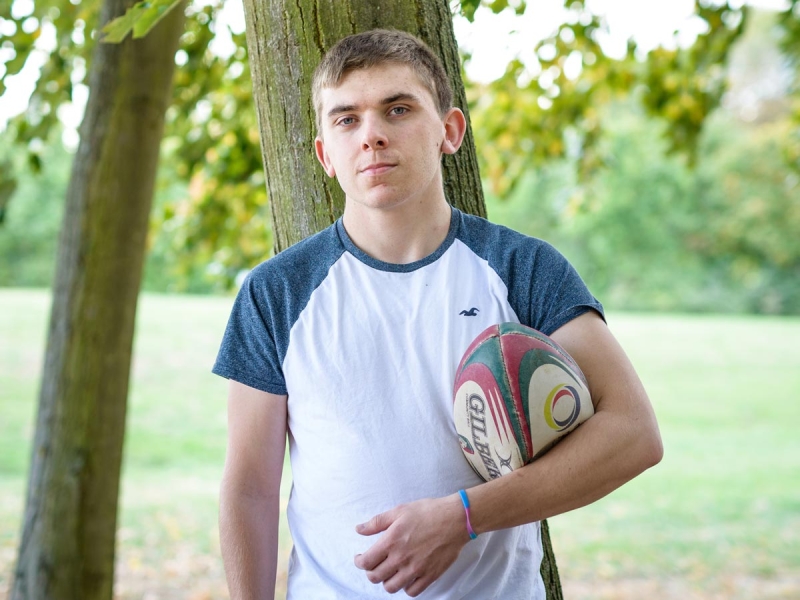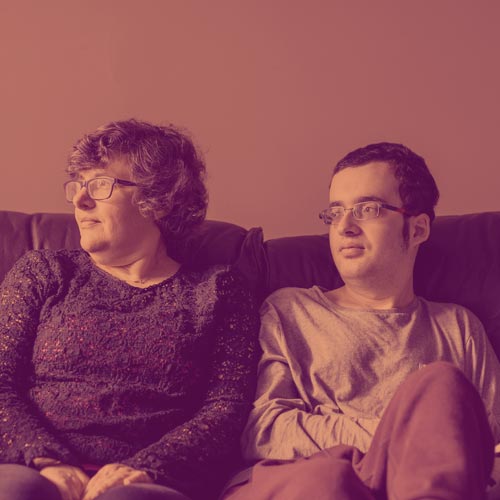How does
Neurofibromatosis Type 1 affect you?
Neurofibromatosis Type 1 (NF1) affects over 25,000 people in the UK, and it can understandably be a daunting diagnosis. We are here to provide some answers.
There are a variety of ways NF1 can manifest differently from person to person, so it’s important to remember that your doctor, and if you’d like, our helpline and specialists, are important places to go, to clarify this question.
However, we can confirm that currently if someone has NF1, he, or she, will have it for life. There is, as yet, no specific medical treatment or gene therapy to cure, prevent, or reverse the features of NF1. Some people may develop complications that are known to be common with NF1. Similarly, some people who are diagnosed with NF1 may never experience health complications.
Hallmarks of NF1 as you may have gathered, are nerve tumours. In addition to this are associated concerns, listed below.
Some complications that can occur are as follows:
● Ophthalmic – NF1 can cause problems at the back of the eye.
● Orthopaedic – NF1 can sometimes create problems with bone development.
● Dermatological – Neurofibromas are benign tumours / growths that develop on or under the skin or along a nerve.
● Plexiform neurofibromas – Some neurofibromas can grow in a wide, spreading fashion around large nerves and may feel like a bunch of knots or cords beneath the skin.
● Tumours & Cancer – Everyone, whether they have NF1 or not, has a risk of developing cancer during their lifetime. It is known that a small number of individuals with NF1 will develop malignant (cancerous) tumours. However, the lifetime risk of someone developing cancer related to NF1 is around 10%. Research in this area is continually being updated.

What health changes should you look out for?
You should seek medical advice if you experience any new, significant or unusual changes in body habits which do not go away, just as you would if you did not have NF1. This could include a new or persistent pain, or a change in physical activities.
● Hypertension (High Blood Pressure) – Occasionally NF1 can cause high blood pressure. It is recommended that everyone with NF1 should have his or her blood pressure checked once a year throughout life.
● Learning & Behavioural Problems – Although intelligence (IQ) studies have shown that the vast majority of people who have NF1 are within the normal intelligence range, somewhere between a third and two thirds of people who have the condition will experience some problems with learning. It is important that these problems are recognised as early as possible.
● Issues with Self Image – Many individuals with NF1 have more obvious signs of NF1 than others and they can find the outward signs of the condition an extremely distressing burden to live with. It is important that these problems are recognised as early as possible.
● Pain & Itching – Itching sometimes happens in NF1 and no one knows why this is so. Medication such as antihistamines or a simple emollient can sometimes help – ask your GP for guidance.
What support can I get?
Nerve Tumours UK Specialist Support
Nerve Tumours UK helps fund a team of Support Specialists in a number of regions across the United Kingdom. These specialists work to improve the lives of those affected by Neurofibromatosis and provide crucial support to patients and families.
National Helpline
Another service we work to maintain is our National Helpline. Open Mondays, Wednesdays and Fridays 9am - 5pm, if you need someone to talk to or some help getting to the right place. Call 07939 046 030 or email helpline@nervetumours.org.uk.
Keep reading the Nerve Tumours UK Website!
Head over to the other Support pages on our website site to find out more information on Neurofibromatosis Type 1 (NF1) and where you can find more help.








